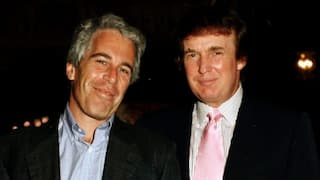X Lawsuit, Filed by Music Publishers Alleging Copyright Infringement, Dismissed By US Judge
The lawsuit, initiated by notable members of the music industry such as Sony Music and Universal Music, sought damages exceeding $250 million.

X, the Elon Musk-owned social media platform previously known as Twitter, appears to be under the spotlight again as a significant portion of a lawsuit filed by 17 music publishers has been dismissed. The lawsuit, which alleged copyright infringement on nearly 1,700 songs due to the platform allowing users to post music without proper authorisation, saw a partial victory for X in a ruling by US District Judge Aleta Trauger in Nashville, Tennessee.
Judge Trauger's decision ruled out the possibility for the publishers to pursue a broad theory of liability against X for infringement. Notably, two infringement claims were dismissed entirely, while a third claim for "contributory" infringement was only partially upheld. This third claim focused on allegations that X had not adequately monitored "verified" users and repeated infringers, and had been slow in responding to takedown notices.
The lawsuit, initiated by notable members of the music industry such as Sony Music and Universal Music, sought damages exceeding $250 million. These entities accused X of fostering an environment that encouraged copyright violations, which they claimed gave X an unfair advantage over platforms like Facebook, YouTube, and TikTok that properly licensed music.
Despite assertions that the issue had worsened since Elon Musk's acquisition of Twitter, Judge Trauger's ruling highlighted key legal distinctions in federal copyright law. She clarified that while X provided the platform for posting content, it wasn't directly liable for infringement. The ruling emphasised the difference between active participants in infringement and platforms merely facilitating it.
ALSO READ: Jeff Bezos Dethrones Elon Musk To Reclaim World's Richest Man Title
Regarding the notion of "vicarious" infringement, Judge Trauger pointed out that X couldn't be held responsible for policing user-generated content or obtaining advance copyright permissions. She underscored that while X exerted some control over its users, this didn't equate to them acting as agents or subordinates of the platform.
This legal battle reflects the ongoing struggle between social media platforms and content creators over copyright protection, with implications for how these platforms operate and regulate user-generated content.






































